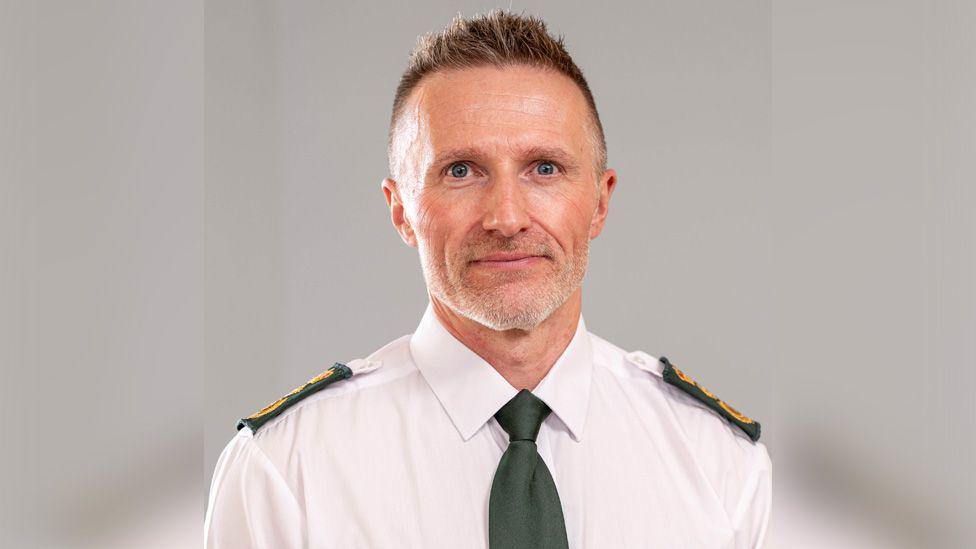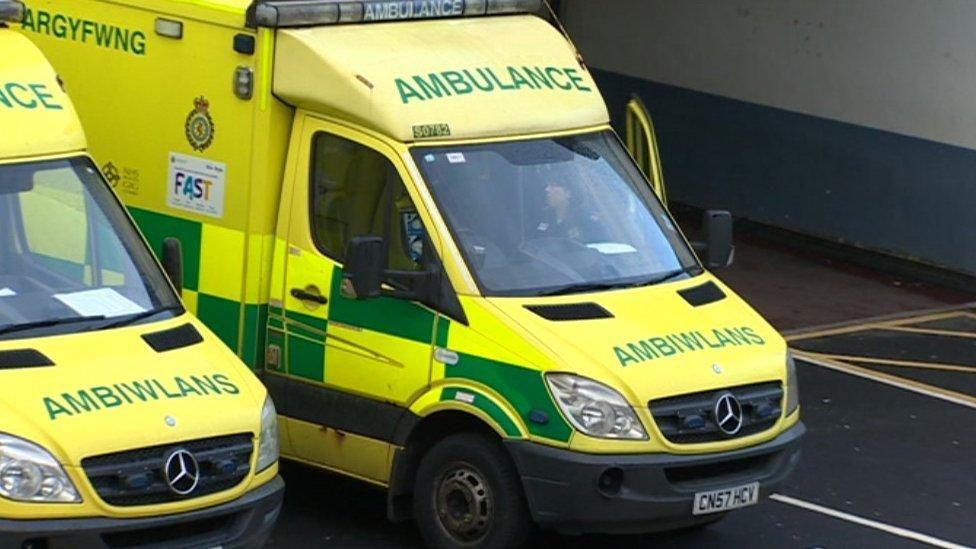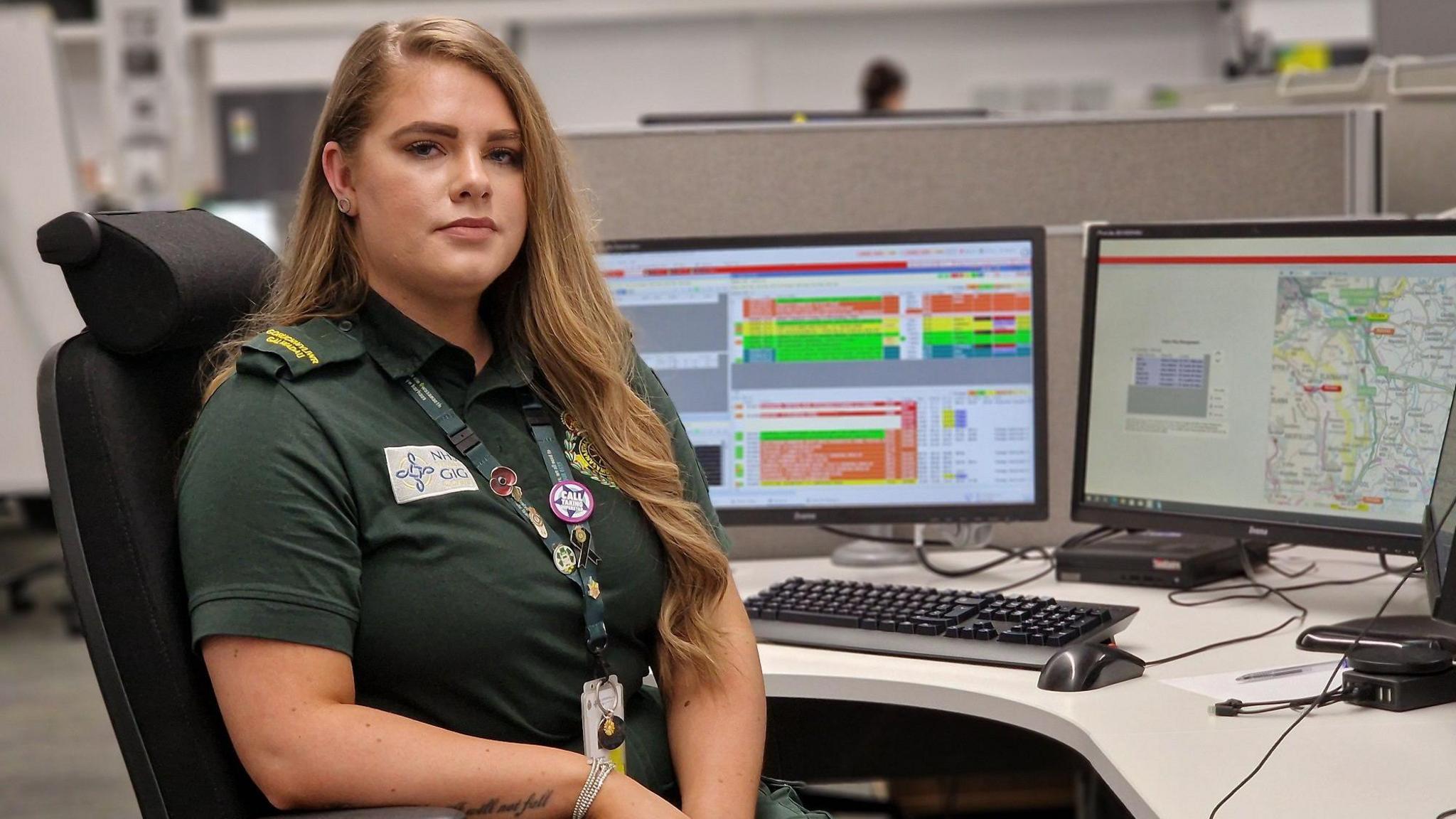Ambulance delays harm hundreds monthly, boss says

Jason Killens has been the boss of the Welsh Ambulance Service for seven years
- Published
Hundreds of patients each month come to avoidable harm because ambulances are forced to wait outside crowded A&E departments, the outgoing boss of the Welsh Ambulance Service has said.
Jason Killens said the delays, which have increased fourfold during his nearly seven years in charge, are "unsustainable, unacceptable" and must "be cracked".
He called his decision to become the chief executive of the London Ambulance Service in July "bittersweet".
But he said he believes he has left the Welsh Ambulance Service in a "better place" than when he took over.
Mum died during 13-hour wait for an ambulance
- Published9 August 2024
BBC reporter's 8-hour wait outside A&E in ambulance
- Published17 September 2024
Ambulances waiting two hours on average outside A&E
- Published5 February
So-called "handover delays" happen when hospitals become clogged up, but are largely beyond the ambulance service's control.
Mr Killens said Wales had "some of the worst in the UK".
"When I came here in 2018 we were losing around 6,000 hours a month. At peak, last year, we were losing nearly 30,000 hours a month.
"Hundreds of patients every month come to some degree of avoidable harm because we can't get to them quick enough.
"I didn't join the ambulance service in 1996 to preside over that. I joined to provide great care."
The delays are "a source of considerable frustration" for ambulance staff, he added.
After issuing a number of similar warnings during his period in charge, Mr Killens said he was "pleased" the Welsh government and colleagues in other parts of the NHS "heard the calls".
"Let's keep our fingers crossed for action which is now under way... we are starting to see improvements."
Official figures indicate a deterioration in Welsh ambulance response times over a number of years, which Mr Killens blames in part on handover delays.
He denied his period in charge had been about "managing decline" and said the service was now "much more sophisticated", only taking about half of 999 callers to hospital, while handling "almost a quarter" via phone or video consultation.
"I worry less about the [response time] numbers and more about the quality of care and its impact."
Mr Killens said he would share lessons learned in Wales with his London colleagues, including giving patients the care they need without having to send a crew.
"We need to get to a point where we only send an ambulance to a patient who really, really needs an ambulance and needs to get to an emergency department."
He said clinicians and the system "have evolved - we're not just drivers with certificates anymore".
The ambulance boss said the key was "convincing communities that they don't need an ambulance or go to an emergency department on every single occasion".
The Welsh government said it has established a taskforce to help health boards improve ambulance handover times.
Related topics
- Published11 March

- Published23 July 2024

- Published23 January 2024
